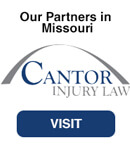Explosion Accidents at Workplaces in Philadelphia
Explosions accidents at workplaces in Philadelphia are serious events that can cause extensive injuries to those within the radius of the blast. They often trigger other accidents such as secondary explosions, fires, or structural damage that can harm other workers who were not near the original explosion. While an explosion can happen in any work environment, certain industries are at higher risk. These include the construction, oil and gas, manufacturing, and mining industries. Workers who are present when an explosion happens on a worksite can suffer catastrophic injuries that may be fatal.

The following are just a few of the most common injuries that workers may sustain in a Philadelphia, South Philly, or Bustleton explosion:
- Amputations
- Burns – first, second, or third-degree
- Cuts and lacerations from flying debris
- Hearing loss from injured eardrums
- Impact injuries from being thrown by the force of the explosion, including head injuries, concussions, or traumatic brain injury
- Lung injuries from smoke inhalation, or breathing superheated air or noxious fumes
Common Causes of Workplace Explosions
One very dangerous source of explosions in South Philly workplaces is combustible dust. Even materials that in the large form are not particularly dangerous can be combustible in dust form. In any industry from woodworking, to manufacturing, to pharmaceuticals, dust that is allowed to accumulate to dangerous levels can be easily ignited by a spark. This initial explosion will cause the dust to scatter into the air where the whole cloud can ignite, thus making a much bigger and deadlier explosion than the first one. Explosions of combustible dust that spread have the power to decimate an entire facility.
Hot work is another major source of explosions. In addition to welding and torch cutting work, this also includes burning, brazing, heating, and soldering. All of these tasks can throw sparks that have the potential to travel more than 35 feet and can ignite flammable materials causing fires and explosions.
Electrical hazards can also trigger explosions. Exposed wiring, wiring that is not up to code, overloaded outlets and extensions, overloaded circuits, and static discharge all present the risk of explosion when located near flammable materials.
Equipment and machinery that are not properly maintained are other major sources of fires and explosions. This applies mainly to furnaces and hot work equipment, but any machinery that is dirty and greasy is a source of fuel when a fire breaks out. Furnaces that are improperly installed or operated are a risk for explosions.
Flammable liquids and gases are often present in chemical plants and are extremely dangerous. It is crucial to store these and other similar hazardous materials away from heat sources and according to OSHA procedures.
Preventing Explosions in the Workplace
There are many things employers can do to prevent explosions accidents at workplaces in Philadelphia. Employers must properly train all workers as to the dangers that exist in their environment and the specific hazards of each worksite that can lead to workplace explosions. These types of accidents cannot be prevented if workers are not made aware of the risk. Personal protective equipment must be provided and training given on its use.
Many explosions can be prevented simply by good housekeeping practices. Work areas should be kept clear of flammable/combustible materials including dust, liquids, and gases.
Equipment must be maintained properly. This means keeping it free of internal dust and lubricating it to reduce friction and the risk of overheating. Dirty equipment is more prone to catching fire. Additionally, equipment that is found to be defective must be taken out of service immediately.
All ignition sources should be controlled. Unless flammable materials are intentionally being heated, all ignition sources should be kept as far away from combustible materials as possible.
Equipment that is not in use should never be left plugged in. Whenever possible, extension cords should be avoided. Do not overload electrical circuits.
Every employer should have fire safety policies in place including emergency evacuation procedures. It is equally critical that every employee have access to, and understand these documents. Workplace hazards should be regularly assessed. Likewise, fire safety systems such as sprinklers and fire extinguishers should be inspected and maintained frequently.
Injuries from a work-related explosion can be devastating, leaving workers with costly medical bills, time out of work, and the need for extensive rehabilitation. Fortunately, Workers’ Compensation benefits are available to workers who have been injured on the job and can help to ease the financial burden brought on by a workplace injury. For those who have lost a loved one in a work-related accident, death benefits may be available. Contact our firm to learn more.
Call for Legal Advice After an Explosion Accident at a Workplace in Philadelphia
Contact our firm today if you need assistance after an explosion accident at a workplace in Philly.



